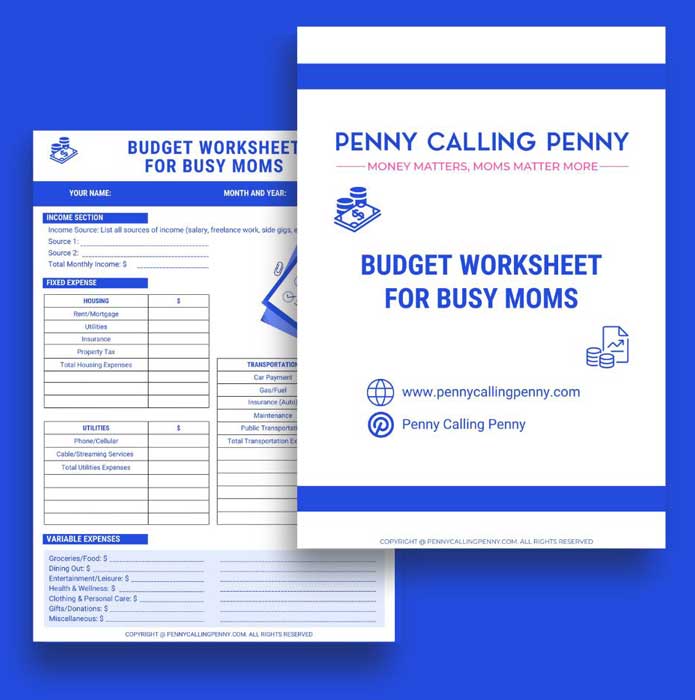Key Points
- Single mothers in Illinois face a significant challenge in finding employment.
- Several grants and programs have been available to assist Illinois single mothers.
- Knowledge is crucial in achieving financial stability and prosperity as a single mom.
In Illinois, single mothers often struggle to find work, and this struggle is real – they are more than twice as likely to be unemployed compared to married women.
This problem is worsened because Illinois has one of the highest unemployment rates in the United States.
Thankfully, there is help available in the form of grants for single moms to meet their needs and support their families.
This blog is here to tell you all about these grants.
We’ll explain how to apply and who is eligible and provide you with essential phone numbers in case you need help with your application.
Whether you’re a single mom facing these challenges or someone looking to help a loved one, this blog is your roadmap to accessing the support you need.
Grants For Single Moms In Illinois
Here are the available grants for single moms in Illinois.
Earned Income Tax Credit (EITC)
The EITC is a tax credit that refunds eligible taxpayers with earned income.
Eligibility:
- Earned income in the tax year.
- Must meet specific income and residency requirements.
- Must file a tax return, even if they have no tax liability or are not obligated to file.
How To Apply:
- Submit a tax return, even if you have no tax liability or are not required to file.
- Claim the Illinois EITC on your Illinois Income Tax Return.
- If you claim the federal EITC, you can also claim the Illinois EITC.
- If you did not claim the Illinois EITC in a previous year but received the federal EITC, you can file an amended Illinois Income Tax Return to claim it.

Source: Singlemotherguide.com
Temporary Assistance For Needy Families (TANF)
Illinois TANF offers temporary financial aid to cover essential expenses like food, housing, utilities, and non-medical costs for single moms.
Eligibility:
- You must live in Illinois.
- You should be unemployed, underemployed, or facing the risk of unemployment.
- You must have children under 18 who depend on you.
- Your income and assets must meet the program’s limits.
How To Apply:
- You can apply in person by bringing your application to the nearest Family Community Resource Center (FCRC).
- Alternatively, you can apply online by visiting the Illinois Department of Human Services (IDHS) website and selecting the “Apply Online” option.
- Call the automated helpline at 1-800-843-6154 (voice) or (866) 324-5553 TTY/Nextalk for further assistance.
Illinois All Kids Program
The All Kids program in Illinois offers health insurance specifically for children, covering a wide range of medical and dental needs.
Eligibility:
- Children under the age of 19.
- Residents of Illinois.
- Families with low income.
- Families whose income exceeds Medicaid thresholds but is at or below 318% of the Federal Poverty Guidelines (FPG), which amounts to $95,400 per year or less for a family of four.
How To Apply:
To apply for coverage for your children, you can contact the All Kids Hotline at 1-866-255-5437.
Download our free printable because guessing where your money went never worked for anyone!

(By subscribing, you agree to our terms & conditions, privacy policy, and disclaimer.)
Medicaid
Medicaid is a program that offers healthcare assistance for individuals with low income, ensuring access to affordable and high-quality medical and dental services.
Eligibility:
- You must reside in Illinois.
- You need to meet defined income and asset limits.
- You should be pregnant or have a child under 18.
- Children between 0-18 qualify if their family’s income is at or below 147% of the federal poverty level (FPL).
How To Apply:
Apply online using the Illinois Application for Benefits Eligibility (ABE) on the Illinois Department of Human Services (IDHS) website. Contact the All Kids Hotline at 1-866-255-5437.
Women, Infants, and Children
The WIC program addresses the nutritional requirements of expectant mothers, single moms, and their kids.
Eligibility:
- Pregnant women.
- Breastfeeding women for up to a year after giving birth.
- Non-breastfeeding postpartum women for up to six months after delivery.
- Infants and children up to five years old.
- Residents of Illinois.
How To Apply:
You can request benefits by visiting your closest Department of Human Services office or by contacting the State WIC Office at 217-782-2166.
Head Start
The National Head Start Association offers educational support initiatives that enable low-income families to secure quality childcare for their children.
Eligibility:
- Children aged from birth to five years.
- Families with income below the federal government’s Poverty Guidelines.
- Children in foster care, those experiencing homelessness, and kids from families receiving public assistance.
- Pregnant women.
How To Apply:
To apply for Head Start and Early Head Start, contact the program serving your area using the Head Start Locator tool on the Benefits.gov website.
Supplemental Nutrition Assistance Program (SNAP)
Illinois SNAP (formerly known as Illinois Food Stamps) provides financial aid to low-income individuals and families in Illinois, enabling them to purchase the food necessary for a balanced diet.
Eligibility:
- Live in Illinois.
- Meet income requirements.
- Be a U.S. citizen or legal immigrant.
- Maintain countable resources below $2,250, such as a bank account or $3,500 if at least one person is 60 or older or disabled.
How To Apply:
You can apply for SNAP online using the Application for Benefits Eligibility (ABE).


Illinois Monetary Award Program (MAP) Grant
The Illinois MAP Grant, administered by the Illinois Student Assistance Commission (ISAC), offers financial aid to residents attending approved Illinois colleges, emphasizing financial need.
Eligibility Criteria:
- Illinois residency and attendance at approved in-state colleges.
- Demonstrated financial need through the Free Application for Federal Student Aid (FAFSA).
- Limited availability, urging early completion of FAFSA.
Application Process:
- Complete the FAFSA as early as possible after October 1.
- Utilize the MAP Estimator to estimate potential awards.
- Ensure registration with IllinoisJobLink.com for eligibility.
Contact Information:
For assistance and information, reach out to ISAC at ISAC Contact.
Help Illinois Families Initiative
The “Help Illinois Families” initiative is a crucial resource providing emergency assistance to eligible Illinoisans, covering utility bills, rent, temporary shelter, food, and other essential household needs.
Eligibility Criteria:
- Open to qualifying families with incomes up to 200% of the poverty level.
- Regardless of COVID-19 impact, the initiative remains available.
Application Process:
- Initiate the process online through the official portal.
- For assistance with information submission, contact the call center at (833)-711-0374.
- Applications are reviewed on a first-come, first-served basis, subject to funding availability.
Contact Information:
For further assistance or information, contact the call center at (833)-711-0374.
The call center provides support in 30 languages, ensuring accessibility for diverse communities.
Illinois FamilyCare
Illinois FamilyCare is a vital healthcare coverage program specifically designed to provide essential health services to parents living with children aged 18 or younger and relatives caring for children.
Coverage Details:
- Comprehensive coverage includes doctor visits, specialty medical services, hospital care, emergency services, prescription drugs, and more.
- For most families with income below 138%, FamilyCare is often available for free, with minimal co-pays, ranging from $2 to $3.90, for certain services.
Application Process:
- For enrollment and application, contact the FamilyCare Hotline at 1-866-ALL-KIDS (255-5437).
- Ensure prompt application to secure timely access to healthcare services.
Contact Information:
For inquiries and assistance, reach out to the FamilyCare Hotline at 1-866-ALL-KIDS (255-5437).
This hotline serves as a valuable resource for navigating the enrollment process and addressing any questions related to the program.
Illinois Child Care Assistance Program (CCAP)
Administered by the Department of Human Services, the Illinois Child Care Assistance Program (CCAP) is a crucial initiative aimed at assisting income-eligible families with child care expenses.
Program Details:
- Families are deemed “income eligible” if their total gross monthly income is at or below 225% of the federal poverty level.
- Cost-sharing is implemented on a sliding scale based on family size, income, and the number of children in care.
Application Process:
- Complete and submit a Child Care Application (form 3455) to the local Child Care Resource and Referral (CCR&R) or child care agency.
- Use the Eligibility Calculator to determine qualification and assess the applicable co-pay.
Contact Information:
For more details or assistance, locate your local CCR&R or call 1-877-202-4453 (toll-free).
These resources provide guidance on the application process, ensuring families receive the necessary support for child care expenses.
Illinois Summer Food Service Program
The Illinois Summer Food Service Program (SFSP) is a vital initiative focused on providing nutritious meals to children in low-income areas during the months of June, July, and August when schools are out.
Program Highlights:
- No application is necessary to receive meals, and proof of income is not required.
- Children and teens ages 18 and younger can access free breakfast or lunch at designated summer meal sites without any eligibility criteria.
How To Find Summer Meal Sites:
- Call (800) 359-2163 or text FOODIL to 877877 to locate a Summer Meals Site near you.
- For emergency or supplemental food needs, visit Feeding Illinois.
Contact Information:
For additional information, inquiries, or assistance, please contact the designated hotline at (800) 359-2163.
The program ensures that children and teens have access to nutritious meals, fostering a healthy community during the summer months.
Illinois Low-Income Household Water Assistance Program (LIHWAP)
The Illinois Low-Income Household Water Assistance Program (LIHWAP) is a vital resource designed to provide financial assistance to low-income households in Illinois, specifically for water and wastewater services.
Program Overview:
- LIHWAP offers support of up to $1,500 for water and wastewater services based on poverty level.
- Eligible households facing disconnection or those already disconnected may qualify for assistance.
Application Process:
- Applications are open through September 30, 2023, subject to funding availability.
- The application process and requirements mirror those of the Low-Income Home Energy Assistance Program (LIHEAP).
How To Get Help Paying Your Water Bill:
For application assistance, call (833) 711-0374 or visit any of the 34 Community Action Agencies located statewide.
Contact Information:
For further inquiries or assistance with the application process, please call (833) 711-0374.
The program aims to ensure that vulnerable households receive the necessary support to maintain essential water services.
Illinois Unemployment Insurance (UI)
The Illinois Unemployment Insurance (UI) program is a state-operated initiative designed to partially replace lost wages for individuals who are out of work through no fault of their own.
Key Program Details:
- Eligible individuals are entitled to UI benefits while actively seeking new employment, with a maximum benefit period of 26 weeks in a one-year period.
- The current maximum weekly unemployment benefit in Illinois is $578 without dependents, increasing to $790 with dependents.
Filing For Unemployment:
- File for UI benefits online through the official portal or visit a local IDES office in person.
- To be eligible, individuals must register with IllinoisJobLink.com (IJL) to facilitate the job search process.
Contact Information:
For inquiries or assistance, individuals can call (800) 244-5631.
The UI program is a crucial safety net for those facing job loss, providing financial support during transitional periods.
Additional Support For Single Moms In Illinois
In addition to grants, there are various other resources available for single mothers in Illinois, including loans, scholarships, and additional support programs.
Here are some options with relevant websites where you can access more information:-
Educational Loans and Scholarships
Investing in education is crucial for securing a better future.
Explore student loans and scholarships tailored to support single mothers in pursuing higher education.
Many educational institutions like Illinois Student Assistance Commission (ISAC), private organizations, and government programs offer financial assistance.
Emergency Financial Assistance Programs
Non-profit organizations and charities in Illinois provide emergency financial assistance to single mothers facing unexpected crises such as medical emergencies, car repairs, or utility bills.
Non-profit organizations and charities like United Way of Illinois in Illinois provide emergency financial assistance to single mothers facing unexpected crises.
Legal Aid For Single Moms
Legal aid organizations in Illinois offer assistance to single mothers in navigating legal issues, including family law matters, landlord-tenant disputes, and domestic violence cases. For further information, visit Illinois Legal Aid Online.
Child Support Services
If you’re not receiving the necessary child support, consider reaching out to the Arizona Department of Child Support Services.
They can assist in establishing paternity, locating absent parents, and ensuring the financial support your child deserves.
Career Development and Job Training Programs
Investing in career development and job training can enhance employment prospects.
Explore programs like Arizona’s Employment and Training Program or local workforce development initiatives that offer training opportunities for in-demand careers.
Microfinance and Small Business Loans
For single mothers aspiring to start or expand a small business, microfinance institutions and small business loan programs provide financial assistance – Illinois Finance Authority.
Support Groups and Networking Opportunities
Joining support groups and networking organizations for single mothers can provide valuable emotional support, shared experiences, and potential job opportunities.
Look for local community groups, online forums, or organizations dedicated to supporting single mothers.
One such group is Meetup – Single Moms Support Groups in Illinois.
Housing Assistance Program
Explore housing assistance programs that offer low-interest loans or down payment assistance for single mothers looking to purchase a home.
Explore housing assistance programs Illinois Housing Development Authority (IHDA) to purchase a home.
Conclusion
Be rest assured that you’re not alone in your financial struggles. Seek these grants for support and apply today.
Do you have other challenges to share or need assistance with? Please leave a comment, and we’ll respond.
Find this helpful? Share it on Pinterest, LinkedIn and Facebook for your dear ones. Also, Sign up for our newsletter! You’ll get articles like this (and so much more!) delivered straight to your inbox.
Did you take our Reader Survey? If not, it only takes 1 minute and you can take our survey here.
FAQs
Grants for single moms may cover various expenses, including housing, childcare, healthcare, education, and other essential living costs.
Grants for single moms can vary by location and are often offered at the state or local level.
To find and apply for grants, you can start by researching government assistance programs, nonprofit organizations, and community resources in your area.








